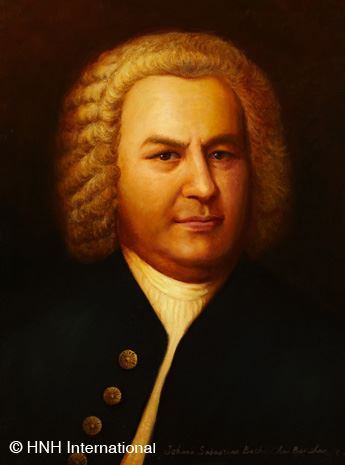
Johann Sebastian Bach (1685 - 1750)
Johann Sebastian Bach belonged to a dynasty of musicians. In following inevitable family tradition, he excelled his forebears and contemporaries, although he did not always receive in his own lifetime the respect he deserved. He spent his earlier career principally as an organist, latterly at the court of one of the two ruling Grand Dukes of Weimar. In 1717 he moved to Cöthen as Court Kapellmeister to the young Prince Leopold and in 1723 made his final move to Leipzig, where he was employed as Cantor at the Choir School of St Thomas, with responsibility for music in the five principal city churches. In Leipzig he also eventually took charge of the University Collegium musicum and occupied himself with the collection and publication of many of his earlier compositions. Despite widespread neglect for almost a century after his death, Bach is now regarded as one of the greatest of all composers. Bach-Werke-Verzeichnis numbers, abbreviated to BWV, are generally accepted for convenience of reference.







 Grand Piano has gained a reputation for producing high quality recordings of rare keyboard gems. Dedicated to the exploration of undiscovered piano repertoire, the label specialises in complete cycles of piano works by many lesser-known composers, whose output might otherwise have remained unknown and unrecorded.
Grand Piano has gained a reputation for producing high quality recordings of rare keyboard gems. Dedicated to the exploration of undiscovered piano repertoire, the label specialises in complete cycles of piano works by many lesser-known composers, whose output might otherwise have remained unknown and unrecorded.






